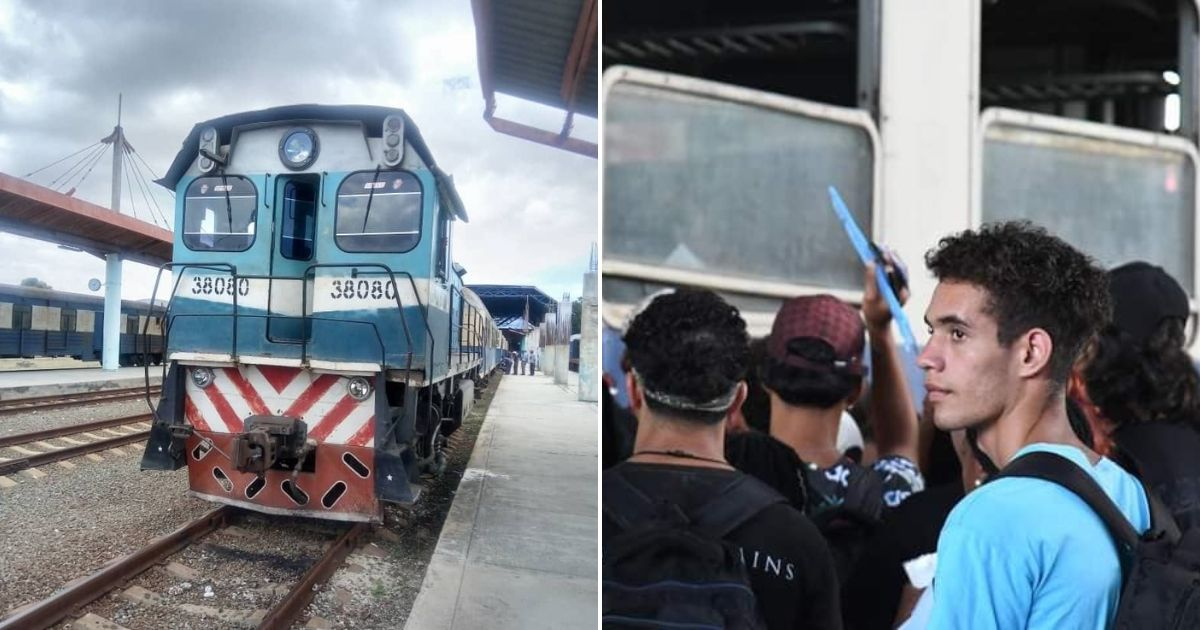
The Cuban Railroad Union launched a service last April that covers the route between Santiago de Cuba and Guantánamo, aimed at university students enrolled at the University of Oriente.
This initiative represents a reprieve amidst the transportation crisis, which significantly affects students who need to travel weekly between the two provinces. This was acknowledged by Eduardo Rodríguez Dávila, Minister of Transportation in Cuba, on Facebook.
According to the explanation, the service started on April 29, with two departures per week (Monday and Friday) at four in the morning from the Guantánamo train station to the Senén Casas Regueiro terminal in Santiago de Cuba, returning at one in the afternoon.
The official emphasized that the "university train" has four German cars available for the university community, with a total capacity of 350 passengers, pulled by a medium-sized locomotive.
He emphasized that the journey lasts approximately three hours and 40 minutes, with 11 scheduled stops outlined in the itinerary.
He also noted that the fare for the route from origin to destination is 100 pesos, although the fee is charged by segments, and in the case of students, they only pay 50 percent.
The official newspaper Venceremos reported on Facebook that this alternative will prioritize students; however, it will also be available to the rest of the population, who are currently facing restrictions on mobility between both provinces due to the increased prices set by private transport operators, who are the primary means of transportation.
"The news portal pointed out, 'They must always carry the ID that certifies them as students.'"
Users on social media requested that the initiative also prioritize patients traveling to Santiago de Cuba for treatment at the Conrado Benítez Oncology Hospital, who currently face challenges due to a lack of transportation or high costs associated with private options.
Others expressed their gratitude for the option of the "university train," but at the same time, they demanded similar alternatives for the young people living in the city of Baracoa, as many have been forced to abandon their studies due to the inability to afford weekly transportation.
In recent years, the deepening crisis in Cuba has particularly impacted transportation, greatly affecting university students who need to travel to nearby provinces to continue their studies.
In addition to the terrible food in university residences, which they alleviate by bringing food and money from home, they must also contend with the high prices of transportation, often private.
This is the situation faced by those living in the special municipality of Isla de la Juventud, affected by the poor service provided by the government to those who need to leave the territory regularly.
In a post shared on his Facebook profile, Rodríguez Dávila, the Minister of Transportation in Cuba, acknowledged that the process is extremely uncomfortable and cumbersome, from purchasing the ticket to arrival.
Filed under: